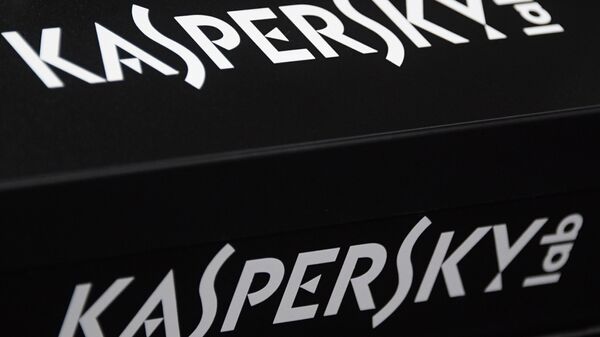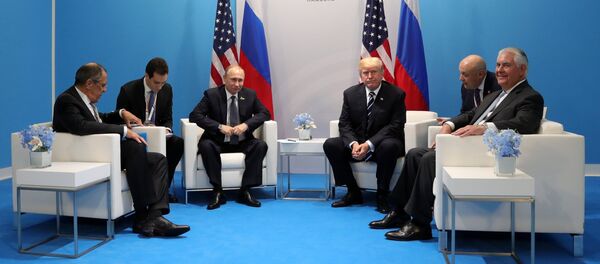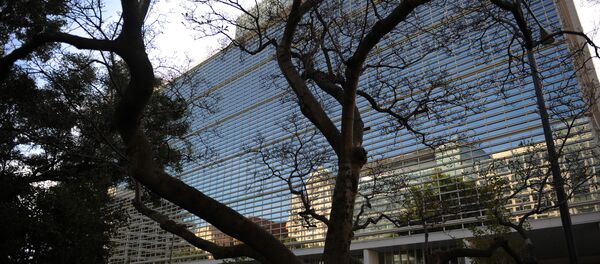Unfair Competition From Microsoft
Kaspersky Lab kicked off the official global launch of its Kaspersky Free, a special edition of its antivirus software offered to users around the world completely free-of-charge, on Tuesday, the company’s CEO Eugene Kaspersky said in a statement.
This move allows the Russian software developer, which never offered any free edition of its program before, to join the growing list of vendors such as Avast and Bitdefender to offer free antivirus solutions to consumers globally. Industry experts told Sputnik that Microsoft’s decision to bundle Windows Defender into Windows 10 may have become an incentive for antivirus software developers like Kaspersky Lab to introduce a free version of their program.
"This is important regarding the latest decisions by Microsoft regarding Windows 10 and Windows Defender. More and more users will run Windows Defender as their default antimalware solution without knowing it. They are protected by default and won't even think about a third party antimalware solution. A free version might be a chance to convince those people," Maik Morgenstern, CEO and Technical Director of AV-TEST, a leading international and independent service provider of IT security and anti-virus research, told Sputnik.
After filing an antitrust complaint against Microsoft with Russia’s Federal Antimonopoly Service last year, Kaspersky also placed similar complaints against the Redmond-based US software company with the European Commission and the German federal cartel office in June.
"Microsoft, like other platform operators such as Google (Android) and Apple (macOS/iOS), has an interest to secure their platform so that customers can use it without problems. That's why they made the step to include Windows Defender in Windows 10. This offers basic antimalware protection to all users for free. But this also means that many users won't install a third party product," Morgenstern said.
Market research firm OPSWAT even went as far as to exclude Microsoft in its antimalware market share report.
"Although Microsoft is heavily saturated in the antimalware product market, we have excluded this vendor because we feel that its products do not accurately represent the user's product of choice as they come preinstalled on many Windows systems and cannot be removed," OPSWAT said in an explanation in its report.
According to statistics from OPSWAT, Kaspersky takes a 5.22 percent share in the global antimalware market as of May, trailing industry leaders such as Avast, which took a commanding 20.48 percent market share.
Morgenstern pointed out that a free version of the program could be a good way to attract more users and eventually lead some to become paid customers.
"It will help Kaspersky keep or even increase its market share. There are successful vendors already in that market following the 'Freemium' approach. They offer their solution free of charge, but include advertising and a certain number of people will upgrade to the paid version," he said.
Offering more users free access to its antivirus software gives Kaspersky a chance to improve the quality and efficiency of its program, experts told Sputnik.
"When users start to use any antivirus product on a computer for free, you don’t pay with money. You pay with your data. If the antivirus product’s developers can find any unknown file (virus) on your computer, it can help them make their own product better," Peter Stelzhammer, a co-founder of AV-Comparatives, an independent organization offering systematic testing of security software in Austria, told Sputnik.
Stelzhammer pointed out that a bigger user base can help antivirus software developers improve their products and protect users better.
"Take the market leader Avast as an example, they has about 200-300 million users. You can imagine how much file information they get to improve their product. I think that’s one of the goals Kaspersky has to make their product better by getting more information from their users," he said.
Depends on Which Government to Trust
Kaspersky Lab faced a number of public relations problems recently after US business publication Bloomberg Businessweek reported in early July that the Moscow-based company was working with Russian Intelligence. The Russian cybersecurity firm called the allegations "hypothetical and false."
"Kaspersky Lab and its executives do not have inappropriate ties with any government. The company does regularly work with governments and law enforcement agencies around the world with the sole purpose of fighting cybercrime," Kaspersky said in a statement.
In addition, The US General Services Administration (GSA) has removed Kaspersky Lab’s products, services and equipment from its approved list because of the monitoring equipment they install required by Russian law, GSA Office of Strategic Communication spokesperson Donna Garland told Sputnik earlier this month.
"The beta test of the free version of Kaspersky’s product started about one year ago, long before the recent accusations came up," he said.
According to the company’s statement, Kaspersky Free successfully piloted in the Russia-Ukraine-Belarus region, in China, and also in the Nordic countries last year. The product was installed several million times during that period.
The Austria-based expert suggested all software developers are vulnerable to pressure from authorities.
"To be honest, if you look at Symantec (a US software company) is also accused of having a relationship with the US National Security Agency. I think no matter which company you look at, if a government strike force comes running into your office, you would give them anything they want to avoid being shot," Stelzhammer said.
Stelzhammer argued that users just have to choose the products of the companies from the countries where they trust the government more.
"The users in Europe do start to have a preference on which country they prefer to choose the product from. But they have no choice in the end," he said.
Stelzhammer explained that Bochum-based cybersecurity firm G Data launched a massive marketing campaign promoting "IT security made in Germany." But it turned out G Data was using virus scanning engine from Bitdefender, which a Romanian cybersecurity software company.






